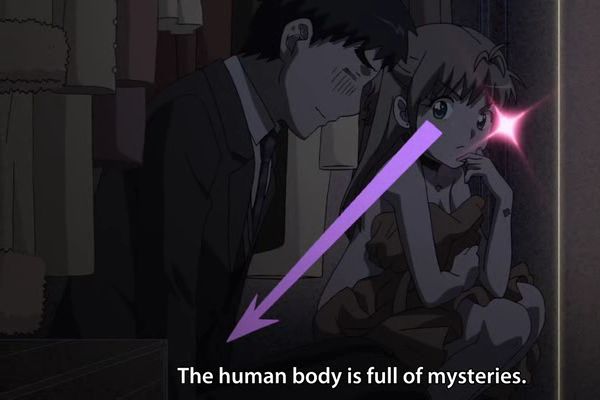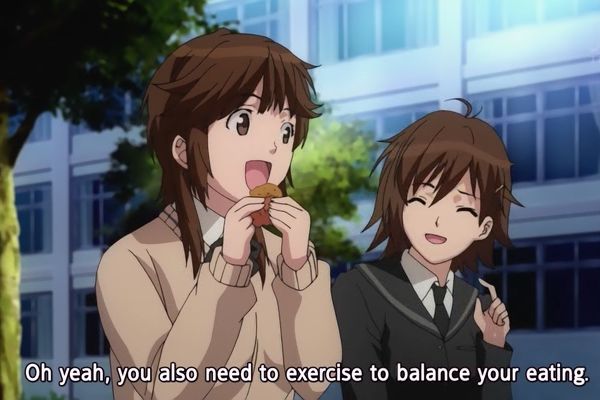The human body is full of mysteries. Especially down there. But today was a slightly different form of pleasant surprise from what the picture might imply to the younger reader.
So on Thursday I had my blood drawn to test for the proteins that signal a probable prostate cancer. The reason was the sudden onset of one particular symptom of enlarged prostate.
For unrelated reasons, I went to bed at 2AM and slept til 9:30 AM today. The thing is, I did not have to get up to urinate, and when I finally got up, there was almost no liquid. That’s when I realized:Â This is when I used to sleep for the last 15+ years!
Well, perhaps not exactly, but around 2 to 9. When I lived closer to the city, I could do this and still squeeze in a 90% job before the 5PM bus home. Or very nearly so. When I moved further away, the next bus in to the city would not be get me to the office until nearly 11, so I would have to get up early and take the previous bus now and then. Â Three such “long” (8 hours) days over the course of two weeks would be enough. Â (Norwegians are very productive – we work short hours and have long vacations and still get everything done. ^_^)
The thing is, I did not actually work 8 hour days as often as that, with the predictable result that I slowly built up a large mound of “time debt”, “undertime” or whatever you will call it. Sometime this winter I started paying it down.
With the help of LifeFlow delta brainwave entrainment, I can go to sleep three hours earlier than before, get up early and still not be particularly sleepy during the day. In fact, if I wake up a couple times in the night, this makes me LESS sleepy in the morning, because even a minute awake is enough to start delta “music” again.  (I don’t keep it playing all night so as to not mess with the brain’s natural 90-minute sleep cycle too much, and to not develop immunity. A couple times a night seems fine though.)
Now the whole 90% job grew out of the fact that I have Delayed Sleep Phase Syndrome, a minority condition where the body’s clock is nor reset by external stimuli in the normal way. There are divergent opinions on whether it can be cured, or even whether it should be cured. Arguably it needs to be cured to approximately the same degree that black skin needs to be cured: The only serious problems from this inheritable condition are those imposed by society.
In fact, if the minority with DSPS were allowed to live the way they were created, we would have less problems with rush hours and billions of dollars would not be lost to people sitting in cars and raging when they could have been at work. Â But let us just let that slide for now. Humans are stupid, as we all know from direct observation of those around us. Especially in traffic, I suppose.
Anyway, my brain is happy with brainwave entrainment. But evidently my kidneys have no respect for it. They probably continue to work hard for the first three hours of the night, every night. (And then more slowly in the morning, as before.) Which means that the sudden onset of the nightly bathroom run did probably not come from any changes down there, but from the changes in my bedtime when I first started to try to work in my undertime, and later switched to working full time.
This, dear reader, is why I almost never go to the doctor. Because when I do, the local clinic usually concludes that I am healthier than those who work there, and the only things I achieve is to  a) embarrass myself, and b) add to my hypochondria score card.  There have only been a couple times in my adult life that a doctor visit has actually helped in any way. OK, perhaps four times.
Oh well. I understand in America, the land of extreme health expenses, it is customary for the better off to take these blood tests even if they have no symptoms. Â (And even if the sum of the biopsies and the treatments are approximately as lethal as the cancer, statistically speaking.)
Now, the big question is whether the kidneys will eventually decide to join the sleep rhythm of the brain, or whether I shall have this divergence for the rest of my working life. I have a feeling that if I live to my planned retirement at 75, I won’t have any long nights of continuous sleep even after that. But who knows.
***
Well, I suppose I no longer need to eat tomato and take long walks. Well, unless I want to decrease my “overall mortality” – the risk of dying from any random reason – by 40% by investing half an hour a day. As far as risk management goes, that seems a pretty good investment to me. On the other hand we could be fatalists and say that the day when you are fated to die, you die. That is certainly true. But that day seems to come a lot earlier for most fat and flabby people, in our part of the world at least. Â (It’s a bit different in hunger-stricken areas, of course. Â May you and I never need to save up fat for times like that.)
Besides, I have started to kind of like both the spaghetti sauce and the long walks. I walked for an hour today again, in rain that was so light it was almost fog. Then went home and ate pasta with tomato sauce. I rather enjoyed them both, truth to tell. Although my “things to write” memory runs full before even half an hour of walking…
Now to decide whether to call off that doctor appointment. I presumably won’t benefit from it in any way; but on the other hand, if I cancel it, the doctor will never know if he later runs into a case like this again.










